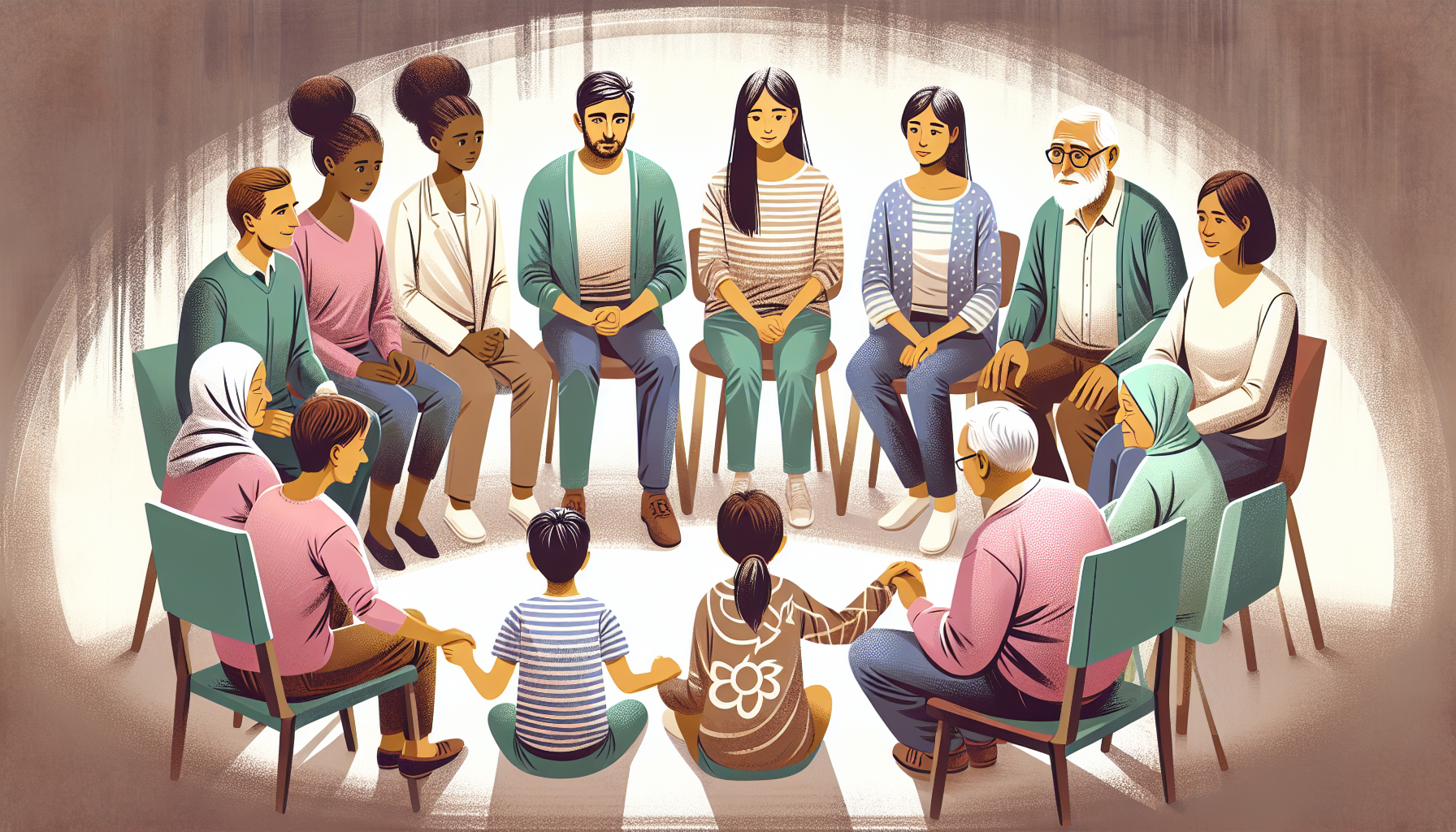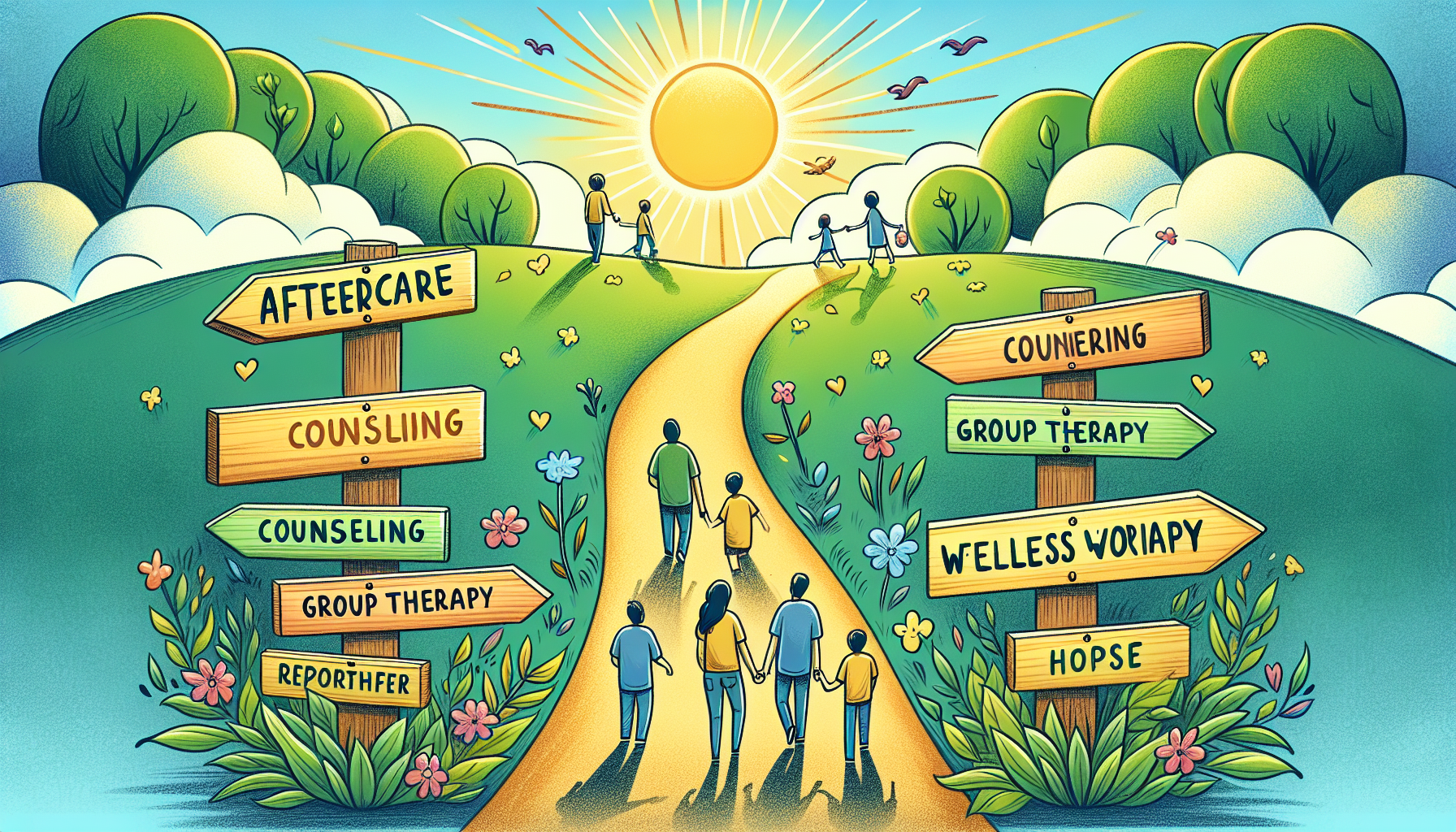Top Benefits of Substance Abuse Treatment Programs
Substance abuse treatment programs offer crucial benefits that pave the way to a healthier, addiction-free life. These programs provide comprehensive care, reduce relapse risk, foster healthy lifestyles, strengthen relationships, and ensure long-term support and aftercare.
Comprehensive Care and Support

When you cross the threshold of a treatment facility, it’s more than just entering a building; it’s venturing into a sanctuary of healing. Substance abuse treatment programs are the cornerstone of successful recovery, providing a sanctuary where lives are rebuilt, and addiction is managed with compassion and expertise.
The aim couldn’t be clearer: addiction treatment aims to treat addiction as a chronic disease, alleviate the tenacious hold of substance dependence, and steer individuals towards a life of enduring sobriety.
Imagine a place where the stress of the outside world falls away, leaving space for healing and self-discovery. Such is the environment provided by rehab centers, free from the triggers and pressures that fuel addiction. Within these walls, you’ll find an arsenal of tools, including:
Medical services
Counseling sessions
Group therapy
Holistic therapies (e.g. yoga, meditation)
Life skills training
Aftercare support
All aimed at constructing a solid foundation for a substance-free existence.
In this nurturing space, the journey of rebuilding one’s life begins. Each individual’s narrative is honored and woven into the fabric of their treatment, ensuring that the care they receive is as unique as their story. Family counseling, behavioral health services, and relapse prevention strategies are all threads in this intricate web of support.
Reducing the Risk of Relapse
Transitioning from the sanctuary of treatment to the unpredictability of the world can be daunting. It’s here that the risk of relapse looms, a shadow that substance abuse treatment programs are well-equipped to dispel. Specialized programs, aimed at strengthening the determination of substance abuse patients, provide essential strategies and support to traverse the challenging landscape of drug addiction recovery.
These programs are lifelines, extending beyond the shores of drug treatment to keep individuals afloat amidst the currents of daily life. They are the embodiment of a treatment program’s commitment to its patients, a promise that the path to recovery does not end at discharge. With treatment modalities targeting specific facets of substance use disorders and a wide array of abuse treatments available, the objective is unwavering: lower the chance of relapse and secure a future liberated from the chains of substance dependence.
Building a Healthy Lifestyle
In recovery, the forging of a healthy lifestyle serves as the anvil upon which long-term success is shaped. Programs are not merely focused on cessation but on the cultivation of a holistic well-being that encompasses mental, physical, and emotional health.
The blueprint for this lifestyle is one of balance and routine, a structure within which individuals can thrive. It’s a design that acknowledges the importance of healthy habits—like regular exercise, balanced nutrition, and adequate sleep—as pillars of a life free from the shackles of drug addiction.
With sustained abstinence comes the promise of a brain restored to normal functioning—a vital piece in the puzzle of recovery. It’s a process that opens the door to clearer thinking, better decision-making, and ultimately, the foundation for a flourishing life beyond the confines of mental illness and substance abuse.
Yet, the journey doesn’t end with the establishment of these habits. Recovery is about carrying these new routines forward, integrating them into the fabric of daily life so that they become second nature, the default rather than the exception.
Strengthening Relationships

The road to recovery is rarely walked alone. It is a journey made richer by the companionship of those who share the same goal: a life free from addiction. Support groups and peer networks are the pillars upon which this communal spirit is built, offering both a mirror to reflect one’s experiences and a window to witness the triumphs of others.
In shared struggles, new friendships are forged—friendships that are rooted in sobriety and blossoming with the potential for growth. These sober friendships are more than just a source of comfort; they are a bulwark against the isolation that so often accompanies addiction.
Family therapy is a transformative journey, cultivating enhancements in the interaction and support among family members. It is a journey through which relationships are fortified, and the network of support for the person in recovery is strengthened.
At the heart of family therapy lies a suite of interventions and approaches that are tailored to the unique dynamics of each family. These interventions are designed to rebuild relationships, delve into the underlying causes of substance abuse, and equip family members with healthy communication skills.
Communication is the lifeblood of relationships, and in the context of family therapy, effective techniques are key to resolving conflicts and fostering understanding. It is through these improved communication channels that families find a new way to navigate the complexities of their shared experiences.
As the relationships within the family unit are nurtured back to health, the need for continued support becomes evident. This realization serves as a bridge to the next section, where the focus shifts to the importance of long-term support and aftercare in the tapestry of recovery.
Long-Term Support and Aftercare

Long-term support and aftercare represent the compass that guides individuals through the uncharted waters of life post-treatment—a journey that requires vigilance, commitment, and an unwavering support system.
This continued care is the guardian of sobriety, a sentinel that stands watch over the gains made during initial treatment. It is a support network that ensures the foundation of abstinence is not only established but reinforced with each passing day, preventing severe relapses and nurturing the seeds of a new beginning.
For those who find themselves on the precipice of relapse, the value of continuing care cannot be overstated. It is a lifeline, particularly for patients at higher risk, offering adaptable treatments that evolve with the individual’s journey and challenges.
Specialized Programs for Different Needs
The terrain of addiction is as varied as the individuals it impacts, each with their unique narratives, hardships, and requirements. It is within this understanding that substance abuse treatment programs offer specialized care, crafting a treatment experience that resonates with each unique individual. This tailored approach ensures that every person has access to the care that speaks directly to their situation, whether it’s influenced by co-occurring mental health issues, gender, or other personal factors.
Dual diagnosis programs exemplify this personalized approach, offering integrated treatment for those grappling with the double burden of mental health disorders alongside substance use disorders. By addressing both issues concurrently, these programs ensure a more holistic and effective path to recovery, recognizing the intricate interplay between mental health and addiction.
Gender-specific services further illustrate the nuanced understanding that men and women may face distinct challenges in their recovery journeys. These services probe into issues related to gender, offering a supportive and safe environment for individuals to tackle these challenges, free from the added burdens of societal expectations or stigma.
Confidentiality and Privacy
The sanctity of an individual’s journey through addiction treatment is shielded by a fundamental principle: confidentiality. It is the veil that ensures privacy, fostering an atmosphere where individuals can share their experiences and challenges without fear of judgment or exposure. This assurance of confidentiality is not just a courtesy; it is a critical component that encourages honesty and openness, which are essential for the healing process.
Recognizing the sensitivity of the information shared within the walls of a treatment facility, health care services are bound by both ethical and legal mandates to protect patient privacy. The specter of stigmatization and discrimination can loom large for those seeking help for substance abuse, and the fear of these repercussions can deter individuals from pursuing the treatment they desperately need.
By fostering a private and safe environment, treatment settings transform into havens where individuals can concentrate on their recovery, free from the burden of external judgment. It is within this protected space that patients can delve into the depths of their addiction, exploring and addressing the root causes without reservation.

